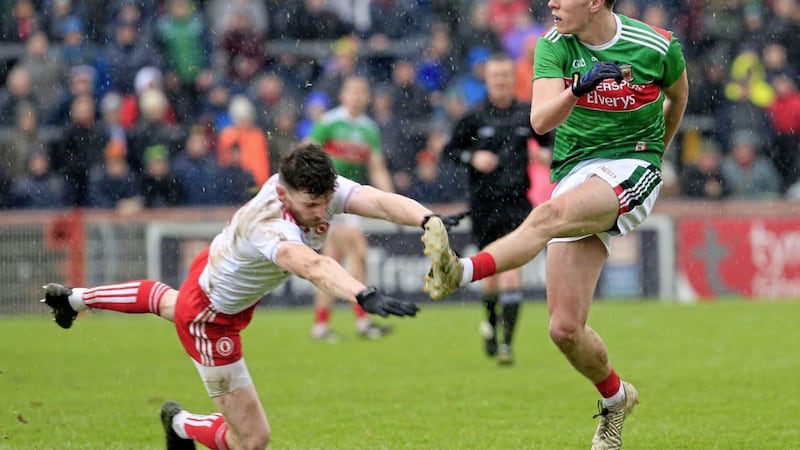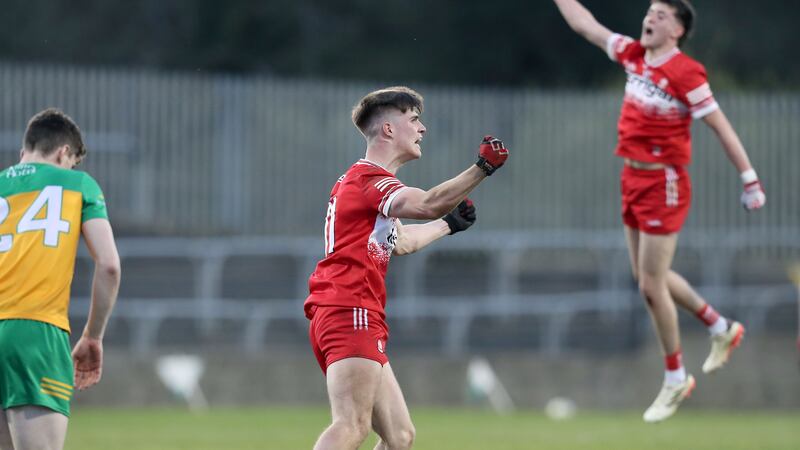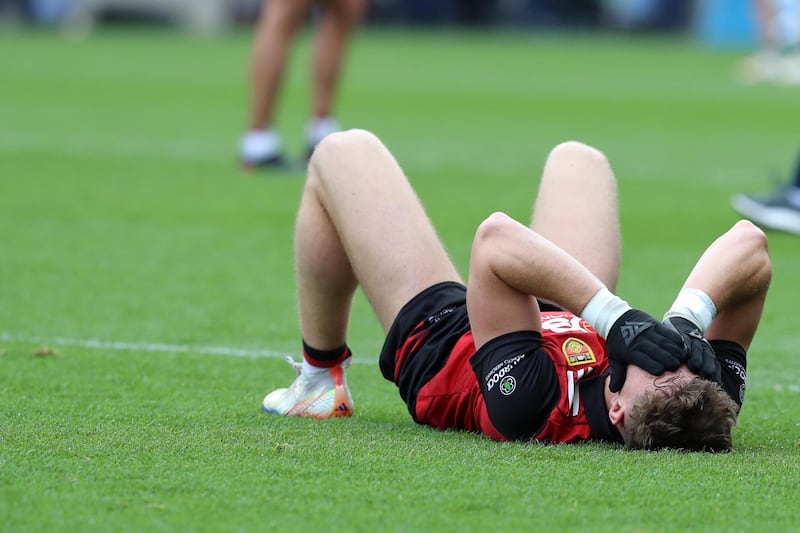GAELIC football should probably be sponsored by Confused.com. Given the rule changes affecting the game and the style changes of teams, it is very difficult to establish any firm ideas on either the potential value of any of the new rules or the formlines of the county teams.
Last week I discussed the potential playing and tactical issues that a rule change like the mark can bring. The issue is that any evaluation of the rule is impossible given that teams are ignoring it and only using it by chance when an opportunity presents itself.
Let’s take a few brief notes on the early games. Firstly, it’s clear that most managers have barely even giving the new rules a cursory acknowledgement in their preparations.
I had pointed out this issue when arguing against the trial of the rules during the League.
The League competition gives teams only seven games in which to avoid relegation or secure promotion/compete for the title. In those seven games, they are not only focused on their position in the table but also trying to test out their panel, find a few new players, set their team up positionally and establish a system of play and carry out sufficient targeted coaching to optimise things for their Championship campaign.
At what stage in this process would it seem likely that they are going to give valuable time to new rules which are not going to exist beyond the end of March?
Monaghan became the poster boys of the proponents of the new rules when it was so eye-catching in their win over Dublin.
So keen were people to find positive examples of how the game could be changed for the better that they appeared to ignore the fact that the two goals came from players not taking the mark.
Instead, they suggested the new rule encouraged the long ball to the full-forward line. Yeah, because that’s the first time that revolutionary tactic has been deemed a good idea, isn’t it?
Similarly, the other instances were not necessarily examples of considered use of the rules either. Very possibly they were just an inter-county player doing what they are supposed to do – and that’s thinking for themselves in real game-time.
Still, if the supporters of the rules use Monaghan’s performance against Dublin as key evidence of their effectiveness, then they have a bit of explaining to do regarding last week’s defeat to Roscommon.
Not unlike Fermanagh in last year’s Championship, Roscommon set up very defensively and Monaghan struggled to break them down.
The existence of the new rules gave Monaghan no apparent useful weapon to break it down. Not a great sign.
Again though, it’s likely that most teams are doing what Jim Gavin (inset) has admitted Dublin are doing with the new rules – and that is paying no heed to them at all.
The rules are there and players will be aware of them as they would be a ‘one touch’ or ‘fist pass only’ rule in a conditioned game in training, but that’s the sum total of it. No active coaching at all, never mind the nuanced tactical thinking modern teams will apply to other components of the game.
In any research, a reliable conclusion can only be drawn if the methodology is sound. If the rules are a medicine hoped to ‘cure’ the game, you cannot judge their success if the patients aren’t even taking the tablets.
Consequently, despite their good intentions and despite the effort it took to get the rules to this point, their trial is looking like a pointless exercise in terms of judging their success or otherwise.
On top of the rules, the evolution in style that teams are adopting at this early stage of the year might also be raising the odd eyebrow. Take Kerry and Roscommon for two very obvious examples of previously attacking teams turning defensive.
Kerry, the goose that always laid the traditionalists’ golden egg of pure football, are going full-on zonal defensive play under new man Peter Keane, with 14 and 15 men regularly in their own half and on occasion inside their own 45-metre line.
This will raise a wry ironic smile in many quarters. Breaths will be held this weekend as they take on Dublin. A win there and the current wisdom of needing to attack Dublin to beat them will be more open to question.
Roscommon, meanwhile, played some of the most open and attractive football in the country over the past few seasons under Kevin McStay but continued to come up short and looked naive on the bigger stage.
Like Kerry, they are under new management in Anthony Cunningham and, likewise, are going unapologetically defensive. A narrow loss to Mayo (which looks all the better given Mayo’s form against Tyrone) coupled with that big result against Monaghan is a good opening for them.
The fact that two new management teams are turning two teams previously known for an atttacking approach into more defensive entities despite the mood for more attacking football and the rule changes, raises more questions than answers. At the very least it suggests the new rules are not the solution they are supposed to be.
Tyrone, meanwhile, are breaking away from their defensive style. What stage they are at in their training cycle or in the development of their new gameplan is key to determining the level of worry that should accompany their two recent performances.
Last Sunday, they appeared to at least be thinking about the use of the advanced mark, moreso than Mayo.
The success or otherwise, once again, cannot be judged because, as a team, they were out of sorts.
On the flip side, the rule proposers have openly said they want to get more contested ball.
Well, Mayo played brilliant, exciting, attacking football. Unfortunately, from a Tyrone perspective, a key attribute of this was their safe maintenance of possession and avoidance of just lumping balls in.
The rareness of contested ball in no way harmed the aesthetics or entertainment of their play. In fact, it only added to it.
So, is there any evidence there that zonal defences are past their sell-by date? Is there any evidence that the new rules will limit their effectiveness and discourage teams to play that way? Is there any evidence that the new rules are creating more attractive styles of play? Eh, no, no and no.
We may be just over a quarter of the way through, but at this early stage I can’t help think the rules trial is a well-intentioned but ultimately wasted venture.








